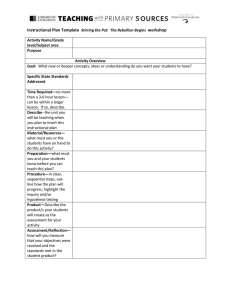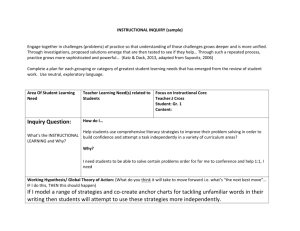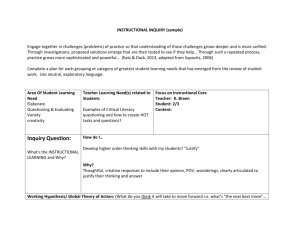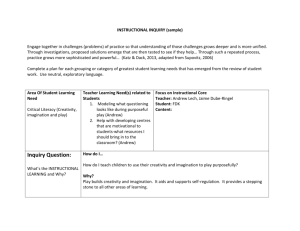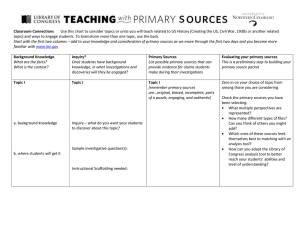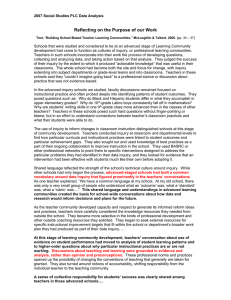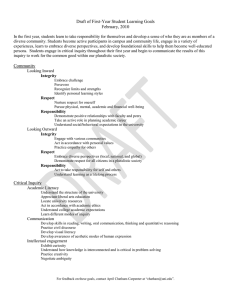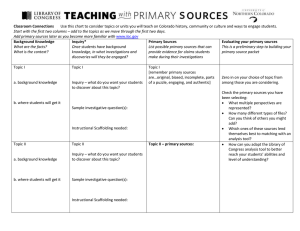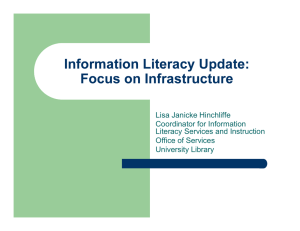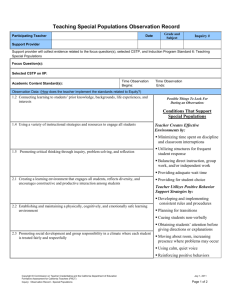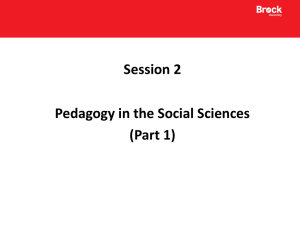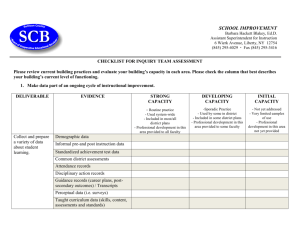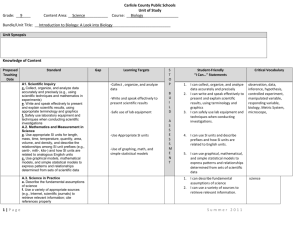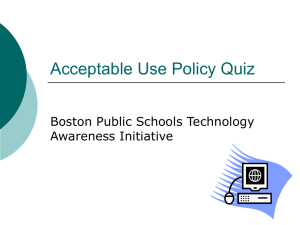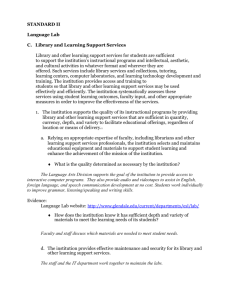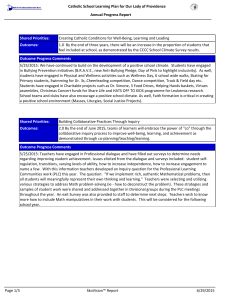Instructional Inquiry Cycle TemplateHK
advertisement
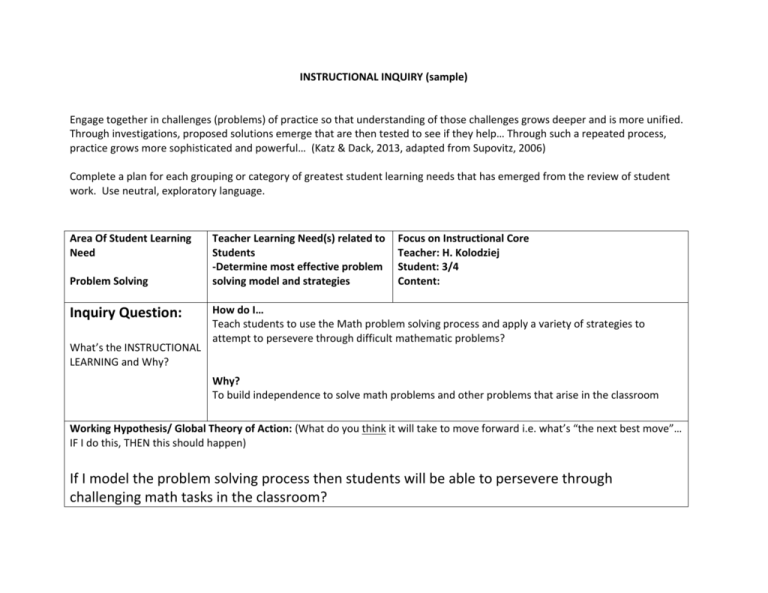
INSTRUCTIONAL INQUIRY (sample) Engage together in challenges (problems) of practice so that understanding of those challenges grows deeper and is more unified. Through investigations, proposed solutions emerge that are then tested to see if they help… Through such a repeated process, practice grows more sophisticated and powerful… (Katz & Dack, 2013, adapted from Supovitz, 2006) Complete a plan for each grouping or category of greatest student learning needs that has emerged from the review of student work. Use neutral, exploratory language. Area Of Student Learning Need Problem Solving Inquiry Question: What’s the INSTRUCTIONAL LEARNING and Why? Teacher Learning Need(s) related to Students -Determine most effective problem solving model and strategies Focus on Instructional Core Teacher: H. Kolodziej Student: 3/4 Content: How do I… Teach students to use the Math problem solving process and apply a variety of strategies to attempt to persevere through difficult mathematic problems? Why? To build independence to solve math problems and other problems that arise in the classroom Working Hypothesis/ Global Theory of Action: (What do you think it will take to move forward i.e. what’s “the next best move”… IF I do this, THEN this should happen) If I model the problem solving process then students will be able to persevere through challenging math tasks in the classroom? PLAN – ACT – ACCESS – REFLECT … a 4-6 week cycle of inquiry My Next Best Move (What will I do next instructionally?) -Diagnostic to determine student understanding of how to solve a math problem (compare to post assessment) -Explicitly introduce the goal/focus to the class Success Criteria (What will success for that “move” look like?) -growth in student understanding of models and strategies they can use to tackle a problem as seen through attitude survey and student work -students begin to use -Co-construct anchor chart problem solving models and aligned with “best practice” strategies to begin to solve problem solving strategies and problems independently models -Explicitly model use of problem solving steps and strategies Evidence – Impact (Where will I look to determine the success of my move? What is the student work supporting this?) -post assessment task to see if student understanding & attitudes about problem solving have changed -Examine student work for evidence of problem solving models and strategies - Reflection (What did I learn from the move?)
